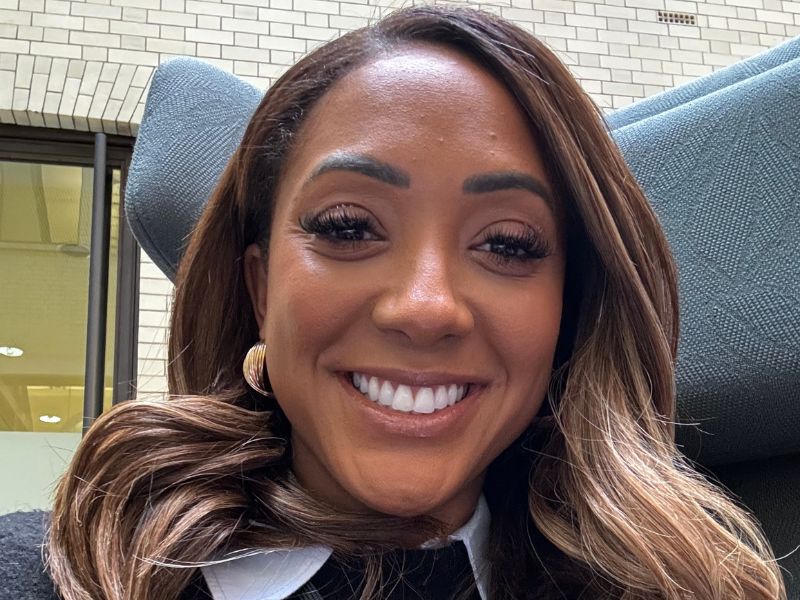
By Bukola Adisa, the founder and CEO of Career Masterclass
Professionals from a minority ethnic background often find themselves in workplaces that aren’t diverse or inclusive; and with this comes the emotional weight of trying to be seen and to navigate these spaces as an ‘other’.
Climbing through the ranks and attaining leadership positions seems to be even more arduous.
The recent call through #BlackLivesMatter has turned a much needed spotlight on the lack of diversity in management teams across many industries and the statistics are indeed dire – in the UK, just 1.5 percent of managers, directors and senior officials are Black.
It’s important for companies to create inclusive and diverse work environments that fully reflect the society they operate in. While buy-in from executive management can quickly catalyse this, HR leaders and their teams have a role to play in ensuring that ethnic minority professionals are fully able to hold their own spaces within the workplace. HR has historically been seen as the conscience of the organisation and the bearer of the organisation’s culture and standards which places them in a unique position to affect real change.
As Black Inclusion Week rolls round, and there’s amplification of the need to celebrate Black people in the UK as well as the importance of building a fair and just society through the inclusion of everyone, here are a few things HR leaders could do:
Educate the company’s leadership
Tone from the top is critical to successfully building an inclusive culture in the workplace. HR teams have to invest time in educating the senior management team on why this is not a ‘nice to have’ and how it is pivotal to building a sustainable and successful business as multiple studies have shown that diversity impacts businesses positively and contributes to the bottom line.
It is also true that what doesn’t get measured does not get done and sharing internal statistics around factors such as gender and race representation at each grade, gender and ethnicity pay no matter how startling with senior management will shine the light on the quantum of the issue and will help focus the collective efforts of the organisation on the right things.
Review policies and procedures
A thorough review of the organisation’s employment policies and hiring procedures will identify any barriers to inclusion. Policies and standards should emphasise treating others with dignity and respect. HR teams could also ensure that a zero tolerance approach to discrrimnation and harassment is adopted, communicated with consequences of breached highlighted.
It is also important to review hiring policies, practices and statistics to ensure that the organisation isn’t caught in a cycle of hiring bias. Conducting panel interviews with diverse panel members, advertising roles through new channels, encouraging ‘blind’ applications are just a few examples of tactics that can eliminate hiring bias.
Celebrate employee differences
One of the most important ways to show employees that their individual backgrounds, cultures and traditions is respected is to celebrate them at work. Actively promoting and celebrating significant holidays in other cultures or religions contributes to building a more inclusive culture. Acknowledging these special days on the company’s internal communication channels will increase the sense of recognition and belonging within the workforce.
Support, fund and champion employee resource groups
While the tone from the top is critical in fostering an inclusive culture, of equal importance is the bottom up, grassroot efforts often run by employees in the form of networks and forums. There are a variety of these networks across gender, ethnicity, religion, disability and sexual orientation.
These networks are critical as they are a safe space for the members where they support, promote, educate and champion each other.They also lobby HR and senior management on behalf of their members. All too often these resource groups are underfunded with inadequate budgets and resources and the employees who run these groups do this in addition to their day job and are often not recognised for the additional contributions.
Supporting their work by ensuring that they are adequately funded will go a long way to building trust. Also sending feedback and recognition to the managers of the active leads will ensure they are not penalised for the time spent on these initiatives. Lastly, these groups are a wealth of information and knowledge that can be utilised when rolling out initiatives and programs to ensure maximum success.
Fix the culture not the employees
Most initiatives and programs solely focus on interventions that appear to fix the employees while ignoring issues of systemic bias within the organisations. While development programs, coaching, mentoring and sponsoring initiatives are great and very much recommended, they must be supported by active efforts to fix the culture in which these employees operate.
An employee can go through many programs but if the environment is not designed to support their progression, it will be a waste. When HR teams implement initiatives to eliminate bias within the organisation such as those highlighted above, then every employee will have the chance to thrive and succeed thereby reducing attrition rates which will result in a win-win situation for everyone.
 About the author
About the author
Bukola Adisa is the founder and CEO of Career Masterclass, a platform dedicated to enabling the progression of Black and Minority Ethnic (BAME) professionals in the workplace. Bukola was also listed in the 2018, 2019 and 2020 PowerList, the 2017 Empower Financial Times List, and the Financial Times HERoes list of executives who have made a substantial difference to women’s careers.
WeAreTheCity covers the latest female centric news stories from around the world, focusing on women in business, careers and current affairs. You can find all the latest gender news here.
Don’t forget, you can also follow us via our social media channels for the latest up-to-date gender news. Click to follow us on Twitter, Facebook, Instagram, and YouTube.








